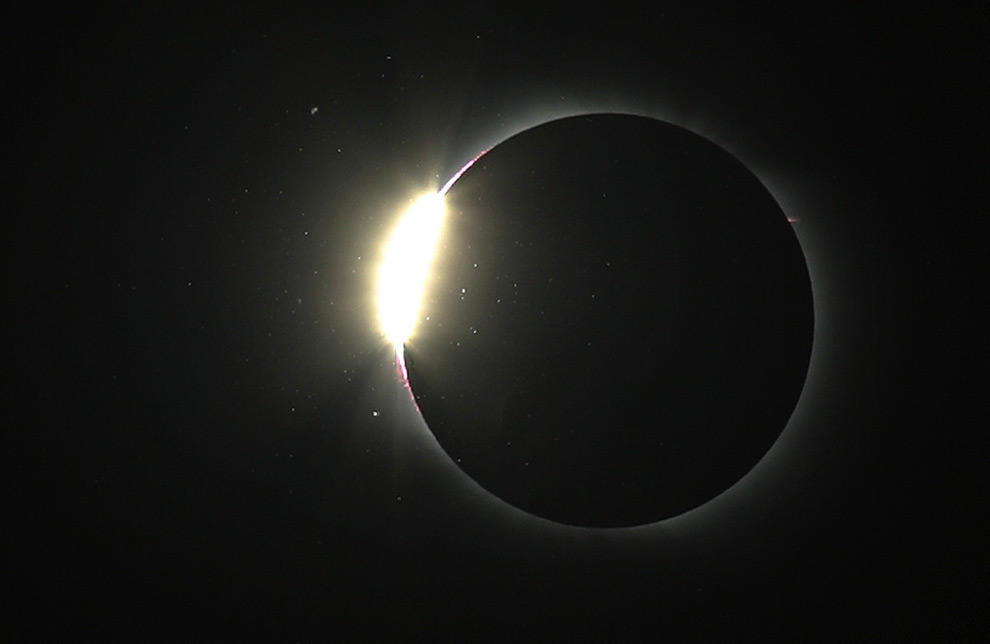Azerbaijanis to witness two solar, two lunar eclipses

By Amina Nazarli
People living in Azerbaijan will have a chance to see a very
rare astronomical phenomenon -- solar and lunar eclipses in
2017.
Khidir Mikailov, the Deputy Director on Scientific Research at the
Shamakhi Astrophysical Observatory of the Azerbaijan National
Academy of Sciences (ANAS) told APA that it will be possible to
witness two lunar and two solar eclipses.
The first lunar eclipse will last 4 hours and 17 minutes from
02:34 to 06:51 on February 11. The lunar eclipse will reach its
maximum at 04:43.
The second lunar eclipse will occur on August 7. The process will
start at 21:23 and will end at 23:18.
The solar eclipse in Azerbaijan will be observed on February 26 from 16:12 to 21:35. People will be able to see the second solar eclipse on August 21 from 22:26 until 01:04.
A solar eclipse occurs when the moon gets between Earth and the sun, and the moon casts a shadow over Earth. In some ancient and modern cultures, solar eclipses have been attributed to supernatural causes or regarded as a bad omen. A total solar eclipse may frightening those people, who are unaware of its astronomical explanation, as the Sun seems to disappear during the day and the sky darkens in a matter of minutes.
As looking directly at the Sun can lead to a permanent eye damage or blindness, special eye protection method or indirect viewing techniques are used when viewing a solar eclipse.
A lunar eclipse occurs when the Moon passes directly behind the
earth into its shadow. This can occur only when the Sun, Earth, and
moon are aligned exactly, or are very close to each other with the
earth in the middle. So, a lunar eclipse can only occur at nights
when the Moon in its full shape. The type and length of an eclipse
depends upon the moon's location relative to its orbital nodes.
Unlike a solar eclipse, which can only be viewed from a certain
relatively small area of the world, a lunar eclipse may be viewed
from anywhere on the night side of the earth.
A lunar eclipse lasts for a few hours, whereas a total solar eclipse lasts only for a few minutes at any given place, due to the smaller size of the moon's shadow. Also, unlike solar eclipses, lunar eclipses are safe to view at without any eye protection or special precautions, as they are not brighter than the full moon itself.
--
Amina Nazarli is AzerNews’ staff journalist, follow her on
Twitter: @amina_nazarli
Follow us on Twitter @AzerNewsAz
Here we are to serve you with news right now. It does not cost much, but worth your attention.
Choose to support open, independent, quality journalism and subscribe on a monthly basis.
By subscribing to our online newspaper, you can have full digital access to all news, analysis, and much more.
You can also follow AzerNEWS on Twitter @AzerNewsAz or Facebook @AzerNewsNewspaper
Thank you!
